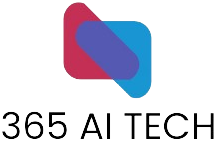Artificial intelligence (AI) has revolutionized various industries, and healthcare is no exception. With its ability to analyze large datasets, identify patterns, and make predictions, AI automation is transforming healthcare delivery, improving patient outcomes, and streamlining processes. In this blog post, we’ll explore the applications and benefits of AI automation in healthcare.
Understanding AI Automation in Healthcare
AI automation involves the use of advanced algorithms and machine learning techniques to perform tasks that typically require human intelligence. In healthcare, AI automation encompasses a wide range of applications, including medical imaging analysis, predictive analytics, personalized treatment plans, and administrative tasks.
Applications of AI Automation in Healthcare
Medical Imaging Analysis
AI-powered algorithms can analyze medical images such as X-rays, MRIs, and CT scans with remarkable accuracy. By detecting abnormalities and identifying potential diseases early on, AI automation helps radiologists make more informed diagnoses and treatment decisions.
Predictive Analytics
AI algorithms can analyze patient data, including medical history, symptoms, and genetic information, to predict the likelihood of developing certain diseases or conditions. This enables healthcare providers to proactively intervene, implement preventive measures, and personalize treatment plans for better outcomes.
Personalized Medicine
AI automation enables the development of personalized treatment plans based on individual patient characteristics, including genetic makeup, lifestyle factors, and treatment responses. By tailoring therapies to each patient’s unique needs, healthcare providers can optimize efficacy and minimize adverse effects.
Administrative Tasks
AI-powered chatbots and virtual assistants can automate administrative tasks such as appointment scheduling, patient inquiries, and medical record management. This frees up healthcare professionals’ time, improves operational efficiency, and enhances the overall patient experience.
Benefits of AI Automation in Healthcare
Improved Diagnostic Accuracy
AI automation enhances diagnostic accuracy by providing healthcare providers with real-time insights and supporting evidence-based decision-making. This reduces diagnostic errors, ensures timely interventions, and ultimately improves patient outcomes.
Enhanced Efficiency and Productivity
By automating repetitive tasks and streamlining workflows, AI automation increases healthcare providers’ efficiency and productivity. This allows them to focus more on patient care, reduce administrative burdens, and optimize resource utilization.
Cost Savings
AI automation helps healthcare organizations reduce costs associated with manual labor, medical errors, and unnecessary procedures. By improving efficiency, minimizing waste, and optimizing resource allocation, AI automation contributes to overall cost savings in healthcare delivery.
Patient-Centered Care
AI automation facilitates personalized medicine and patient-centered care by tailoring treatments to individual needs and preferences. This leads to better treatment outcomes, increased patient satisfaction, and higher engagement in healthcare decision-making.
Accelerated Innovation
AI automation drives innovation in healthcare by enabling the rapid development and deployment of new technologies and therapies. By leveraging AI algorithms for data analysis and decision support, researchers and clinicians can discover novel insights and advance medical knowledge.
Conclusion
AI automation holds immense potential to transform healthcare delivery, improve patient outcomes, and enhance the overall quality of care. By leveraging advanced algorithms and machine learning techniques, healthcare organizations can unlock valuable insights, streamline processes, and deliver personalized, patient-centered care at scale.

